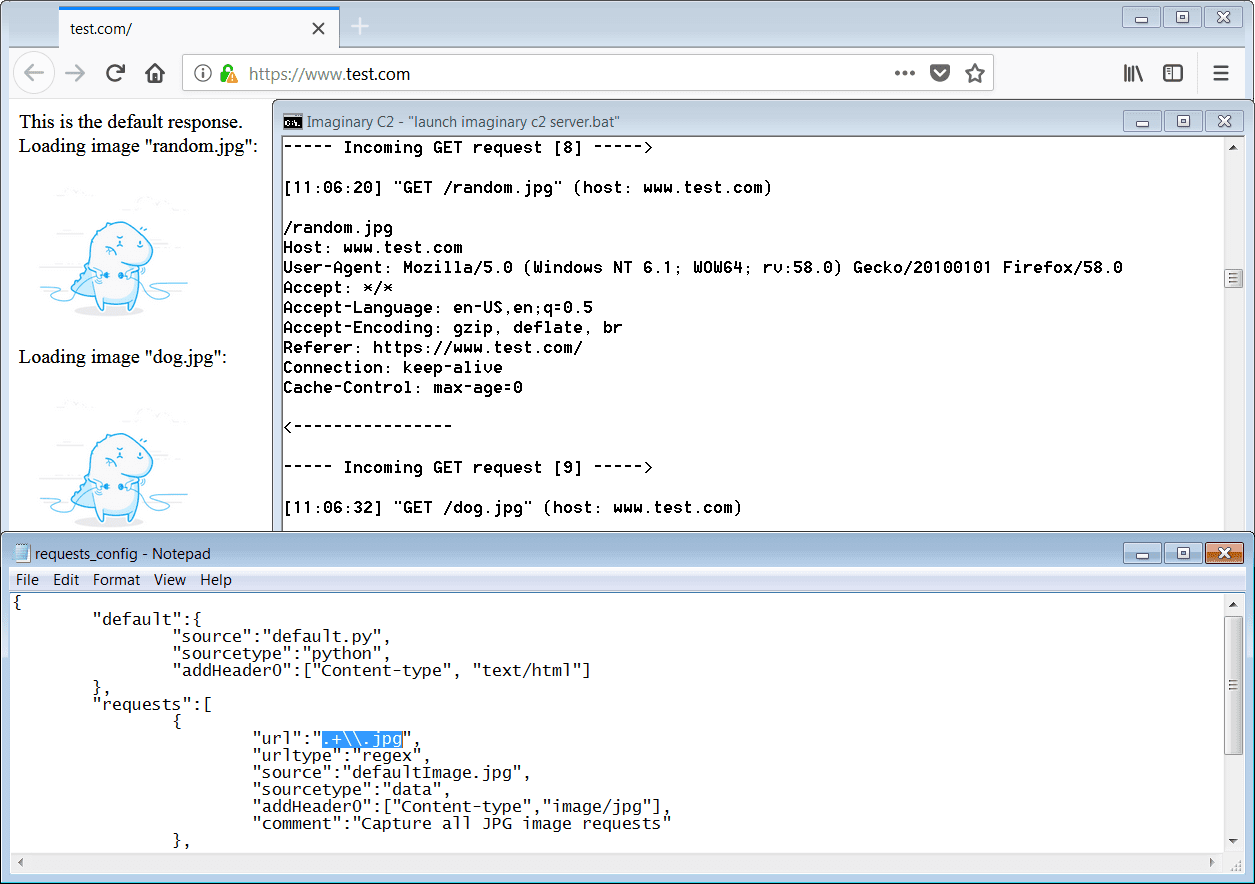
Imaginary C2
Imaginary C2 is a python tool which aims to help in the behavioural (network) analysis of malware.
Imaginary C2 hosts an HTTP server which captures HTTP requests towards selectively chosen domains/IPs. Additionally, the tool aims to make it easy to replay captured Command-and-Control responses/served payloads.
By using this tool, an analyst can feed the malware consistent network responses (e.g. C&C instructions for the malware to execute). Additionally, the analyst can capture and inspect HTTP requests towards a domain/IP which is off-line at the time of the analysis.
Replay packet captures
Imaginary C2 provides two scripts to convert packet captures (PCAPs) or Fiddler Session Archives into request definitions which can be parsed by imaginary C2. Via these scripts, the user can extract HTTP request URLs and domains, as well as HTTP responses. This way, one can quickly replay HTTP responses for a given HTTP request.
Technical details
requirements: Imaginary C2 requires Python 2.7 and Windows.
modules: Currently, Imaginary C2 contains three modules and two configuration files:
| Filename | Function |
|---|---|
| 1. imaginary_c2.py | Hosts python’s simple HTTP server. Main module. |
| 2. redirect_to_imaginary_c2.py | Alters Windows’ host file and Windows’ (IP) Routing Table. |
| 3. unpack_fiddler_archive.py & unpack_pcap.py | Extracts HTTP responses from packet captures. Adds corresponding HTTP request domains and URLs to the configuration files. |
| 4. redirect_config.txt | Contains domains and IPs which needs to be redirected to localhost (to the python HTTP server). |
| 5. requests_config.txt | Contains URL path definitions with the corresponding data sources. |
request definitions: Each (HTTP) request defined in the request configuration consists of two parameters:
Parameter 1: HTTP request URL path (a.k.a. urlType)
| Value | Meaning |
|---|---|
| fixed | Define the URL path as a literal string |
| regex | Define a regex pattern to be matched on the URL path |
Parameter 2: HTTP response source (a.k.a. sourceType)
| Value | Meaning |
|---|---|
| data | Imaginary C2 will respond with the contents of a file on disk |
| python | Imaginary C2 will run a python script. The output of the python script defines the HTTP response. |
Download && Tutorial
Author: Felix Weyne (website) (Twitter)
